BLOGS BY:
Defrazzle Me
Exhausted and then some...

Importance of Mindfulness
Introduction:
I am still amazed that more schools are not teaching the foundations of mindfulness from an early age. The potential of mindfulness is quite incredible. It has been proven to increase focus dramatically and in turn academic results or work output. It is also quintessential in fostering resilience and character building. I only wished I had had this tool in the kit as I walked through the maze of adulthood to assist me keeping out of a constant fight or flight state.
Middle age life is frantic, chaotic and can be beyond exhausting. Whether you are a single mum, caring for an elderly parent, going through menopause, financial issues and career paths - it can all have a direct impact on our health, work life and overall state of happiness and contentedness.
Mindfulness moves us beyond “coping” and just getting by. The techniques assist us to perceive the world and situations in a different light. It enables us to reframe these moments and flourish, it resets our nervous system and assists us live in a fulfilled and compassionate manner - one day at a time.
Life can hand us some fairly tough blows – death of a loved one or a pet, divorce (some may call it a blessing LOL), career endings, financial struggles, rate rises, raising special needs children, looking after aging parents and and and. Stress can sky rocket and the ability to cope reduces to not being able to cope. In my case it lead to addiction. A horrendous road of maladaptive behaviour. One that consumed my every moment of every day for a period of time that in turn lead to a dark dark hole of unshakeable depression.
Before you read on, maybe you would like to download 10 Mindfulness Exercises for free. They are science based and assist to cultivate inner peace in your daily life.

You see as we evolved over the past 300,000 years our minds have adapted through genetic mutations, reproduction and inheritance. Our original purpose of the mind was to focus on short-term needs such as food, shelter and avoiding being killed. We were not designed to tackle other complexities such as obesity, war, pandemics, climate change and immigration.
The brain and its processes are no longer a good fit for the modern world, known by evolutionary psychologists as a ‘psychological mismatch.’ This lack of alignment impacts our ability to cope. According to a UK Mindful Nation Report, in 2085, up to 12% of the adult population was experiencing depression, with only one in three receiving support. (Positive Psychology).
Moreover, mindfulness is not complicated.
It improves in response to a straightforward set of meditation practices that develop an increased awareness of thoughts, sensations, and feelings. Combined with increased kindness and passion, mindfulness improves our capacity to cope by identifying the options available to us.
Mindfulness leads to greater wellbeing and mental clarity, and an increased ability to care for both yourself and others.
The practice can be as simple as an awareness of a simple daily task. We observe our thoughts and emotions as they come and go before gently returning focus to physical sensations, while remaining curious, compassionate, and accepting.
How mindfulness changes the emotional life of our brains | Richard J. Davidson | TEDxSanFrancisco (can we link to this Ted Talk)
Countless research not prove that mindfulness has major psychologoical, cognitive and physical benefits including:
Increased happiness and compassion
Increased memory
Improved immune functioning
Increased focus and creativity
Decreased cortisol levels.
Increased life and work satisfaction
Increased problem solving
Increased purpose
And I can go on. When I was at the crux of my addition and depression, my cortisol levels sat at 28 nanograms per milliliter (saliva test). Cortisol is the hormone released by the adrenal gland that assists to regulate blood sugar, metabolism, memory and inflammation. High readings lead to sever fatigue, irritability, easy bruising, thinning skin, headaches and much more as your body tries to process through the fight or flight state.

Being in a constant state of stress can have a huge impact on your health. As I started to heal myself over many years I had to learn how to remove my body from the fight or flight response it was sitting in constantly.
The fight-or-flight response evolved as a survival mechanism. It enables humans and other mammals to react swiftly to life-threatening situations. Basically, through evolution we still react like we are going to be eaten by a dinasour or tiger:
Rapid pulse and respiration increase oxygen supply for fast action
Conversion of glycogen (body’s fuel source) to glucose provides energy for muscles to move quickly
The pupils dilate allowing more light into the eyes for increased night vision
Calming Techniques for an Overactive Response
If someone experiences an overactive fight-or-flight response (even when not in immediate danger), practicing mindfulness or moving the body is key. Overtime I learnt to calm my body through a number of mindful exercises such as:
Deep Breathing: A three-part breathing exercise can slow down breathing, heart rate, and adrenaline response. A simple example to try is:
Inhale deeply through your nose for a count of 4.
Hold your breath for a count of 7.
Exhale slowly through your mouth for a count of 8.
Relaxation Strategies: Practices like meditation, progressive muscle relaxation, or mindfulness can help calm the nervous system.
Physical Activity: Regular exercise reduces overall stress and anxiety
Remember, while the fight-or-flight response is automatic, these techniques can help manage its impact and promote well-being. However, the daily practice of mindfulness is the primary key to resetting your body and nervous system and keeping it out of fight or flight.
Take the first step towards recovery
and book a free consultation with
Defrazzle Me today.
Let's Connect




